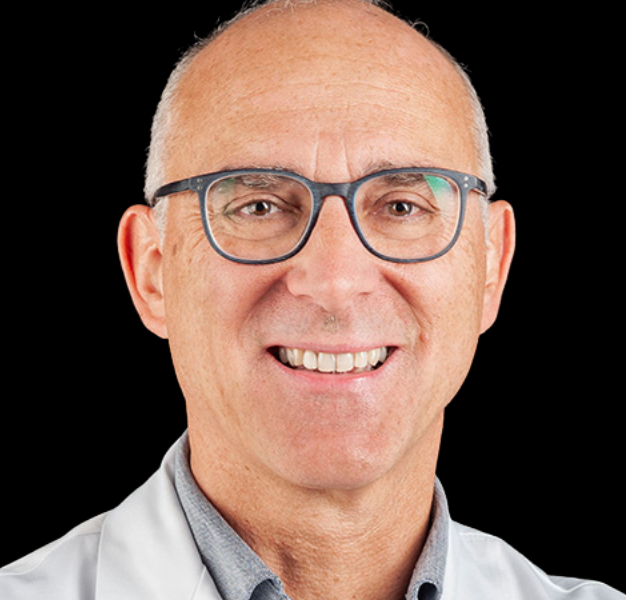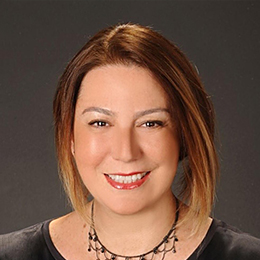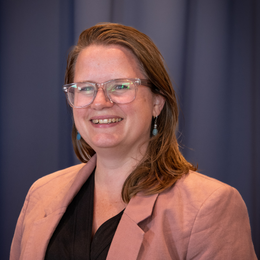
The Society
More than 35,000 clinicians, scientists and allied health professionals from over 160 countries are part of the ERS community
Become an ERS member







Home The Society Assemblies and Groups ERS Assembly 7: Paediatrics
Home The Society Assemblies and Groups ERS Assembly 7: Paediatrics
Group 07.01
Chair: Kathryn Ramsey
Secretary: Kelechi Ugonna
This group brings together scientists and clinicians focused on the comprehensive study of paediatric respiratory physiology and diagnostic testing. Our expertise spans from basic science in ventilation and gas exchange to the advanced interpretation of clinical measurements. We focus on cutting-edge diagnostic techniques in lung function testing, both in the laboratory and other clinical settings, such as intensive care units and operating theatres.
We are at the forefront of developing and refining diagnostic tools for paediatric patients, including those with chronic lung diseases. We explore new methods for assessing small airways, ventilation homogeneity, and lung function in infants and young children, which are crucial to understand the pathophysiology and allow early interventions for these conditions.
We also explore cutting-edge approaches to exercise testing, with a particular emphasis on cardiorespiratory physiology. This is crucial for understanding how respiratory and cardiovascular systems respond to physical activity, especially in children with chronic lung diseases or other cardiorespiratory conditions.
Our group is highly collaborative, working closely with related ERS and ATS task forces, including those dedicated to infant and preschool respiratory function testing. We regularly engage in discussions on the latest advances in respiratory physiology and diagnostic techniques, ensuring that our members stay informed about rapidly evolving fields. High-quality symposia and scientific activities foster interdisciplinary collaboration, furthering the exchange of knowledge and innovation in paediatric respiratory medicine.
Group 07.02
Chair: Erol Gaillard
Secretary: Louise Fleming
This group has more than 300 members worldwide, with more and more members coming from the CECEC region. Significantly, an increasing number of abstracts have come from these countries.
Our group is one of the largest within the ERS. Its aims are to:
The Group Chair and Secretary welcome any suggestions ERS members might have to achieve its goals.
Group 07.03
Chair: Taner Bülent Karadag
Secretary: Oded Bruer
This group focuses on cystic fibrosis (CF), a complex, challenging and multidisciplinary disease. The symposia and poster sessions during the ERS Congress are a lively platform where paediatricians, paediatric pulmonologists, pulmonologists, microbiologists, radiologists and allied respiratory health professionals meet and discuss their interests.
In CF, new therapeutic strategies and diagnostic tools are applied which often find their way into the treatment of other pulmonary diseases. The care of CF patients is a team effort and we therefore aim for close collaboration with other groups and assemblies including groups with adult pulmonologists with whom we share common interests. We encourage our members to submit their abstracts on CF and give active input.
Group 07.04
Chair: Stefan Unger
Secretary: Nadine Freitag
Our group 07.04 offers a unique forum for clinicians, clinical scientists, researchers and multidisciplinary team members worldwide to share their clinical experience and research in respiratory infections and immunological pathways in childhood.
The impact of early life infections on long term lung health has become increasingly evident over the last years. Research into the prevention, effective management and long-term outcomes is essential to minimise lung damage and pave the way for novel therapies.
The growing number of abstracts submitted to our group for the annual ERS Congress highlights both the importance of this field and the engagement of our members. We welcome submissions spanning basic science, translational and clinical research in paediatric respiratory infections and immunology, including but not limited to:
- Early life respiratory infections and immune/inflammatory pathways.
- Persistent productive cough and recurrent respiratory infections in childhood.
- Complicated community acquired pneumonia.
- Chronic suppurative lung diseases including paediatric bronchiectasis, primary ciliary dyskinesia, and protracted bacterial bronchitis.
- Immune deficiencies and respiratory infections
- Respiratory infections and morbidity in children with neurodisability.
- Severe viral infections and subsequent lung disease such as bronchiolitis obliterans.
- Risk factors for respiratory infections in childhood, including exposure to indoor/outdoor pollution, smoke and mould.
We collaborate closely with other paediatric groups and adult ERS assemblies, as well as international societies such as the Pan African Thoracic Society (PATS). We are happy to receive suggestions from other assemblies and societies for congress symposia, webinars, post graduate courses, scientific meetings and workshops and task forces.
Current ERS task forces include:
- Respiratory morbidity in children with neurodisability
- Imaging in the diagnosis and follow-up of complicated paediatric pneumonia (in collaboration with the European Society of Paediatric Radiology Society (ESPR))
We encourage active participation from both early career and established researchers and clinicians.
Members are invited to suggest topics and speakers for future webinars and congresses. We also hold online meetings and welcome new ideas for group activities - please do not hesitate to get in touch.
Group 07.05
Chair: Emanuela Zannin
Secretary: Christopher Harris
This group is aimed at intensivists and neonatologists with an interest in respiratory disease – surely all of them! Topics that are of particular interest include neonatal and paediatric resuscitation, ventilatory techniques, the evolving spectrum of chronic lung disease and lung function testing in the intensive care unit.
However, all topics that would involve intensive care are welcomed. The group is fairly small, giving plenty of opportunity to play an active part, and we manage a high success rate with proposals for symposia and postgraduate courses. In recent years this has included activity on neonatal resuscitation, end-of-life care and non-invasive assessment of lung function. Planned sessions include a paediatric resuscitation course and a session on the respiratory management of neuromuscular disease in children.
Group 07.06
Chair: Olena Gruzieva
Secretary: David Lo
Group 7.06 is a multidisciplinary group of academics and clinicians including epidemiologists, statisticians, climate scientists, paediatricians, allied health professionals and geneticists.
Previous abstracts submitted to the group have focused mainly on children’s airways and suppurative lung diseases including asthma and Primary Ciliary Dyskinesia. However, our group is keen to receive research and project submissions from all paediatric respiratory disease subspecialty areas which broadly align with our clinical and methodological interests in:
- Early origins of lung health.
- Environmental (including climate change and environmental tobacco exposure).
- Genetic and molecular epidemiology aiming at uncovering the underlying biological mechanisms behind respiratory disease progression.
- Health inequalities and sociodemographic contributions to paediatric respiratory disease.
- Risk prediction.
- Use of big data and novel analytical methodology (including machine learning and AI) to address clinically important questions in paediatric lung and airways disease.
We have strong associations with the adult Epidemiology and Environment Assembly and with all other groups within the Paediatrics Assembly.
The Chair and Secretary are interested in interacting and cooperating with other Groups and welcome suggestions from other Groups or members of the Society for joint workshops, congress symposia and at other sponsored scientific meetings throughout the year.
We are enthusiastic about promoting collaboration and joint working within our own membership, and encourage early career members to get in touch for opportunities to actively participate in developing the group further.
Group 07.07
Chair: Raffaella Nenna
Secretary: Anna Wiemers
To date, the main interest of this group has been investigation of the paediatric (upper and lower) airways by endoscopy, including special procedures, such as bronchoalveolar lavage and bronchial and transbronchial biopsy, and their respective applications in different respiratory disorders from infancy to adolescence.
Group members are involved in teaching programmes, mainly the annual paediatric hands-on flexible bronchoscopy course (endorsed by the ERS school), held for the first time in 2001. Having completed the above standardisation projects, the scope of activities of our group will extend, e.g. to noninvasive new imaging techniques, such as virtual endoscopy, as well as noninvasive methods to study airway inflammation in paediatric lung diseases. We are interested in interacting and cooperating with other Groups and would like to encourage ERS members to get actively involved in our group.
Group 07.08
Chair: Stijn Verhulst
Secretary: Tan Hui Leng
The Paediatric sleep, sleep-disordered breathing, and chronic respiratory failure group within the Paediatric Assembly of the European Respiratory Society (ERS) is dedicated to advancing research, education, and clinical excellence in the field of paediatric sleep medicine.
Our group brings together clinicians, researchers, and healthcare professionals with expertise in sleep physiology, respiratory control, sleep-disordered breathing and chronic respiratory failure in children. Furthermore, we want to highlight the importance of healthy sleep for children.
We focus on a broad spectrum of conditions, including obstructive sleep apnoea, central breathing disturbances, congenital and neuromuscular disorders affecting sleep-related breathing and the management of chronic respiratory failure requiring long-term ventilatory support. Through collaborative research, guideline development, and educational initiatives, we aim to improve the diagnosis, treatment, and long-term outcomes of children with sleep-disordered breathing and respiratory insufficiency.
By fostering international cooperation and multidisciplinary expertise, we strive to translate cutting-edge research into clinical practice, ensuring optimal respiratory health and quality of life for paediatric patients.
You can join this assembly by selecting it as your main group or one of your optional groups in myERS. Only ERS members can join this assembly. Selections can be changed at any time.
Join the Paediatrics assembly

